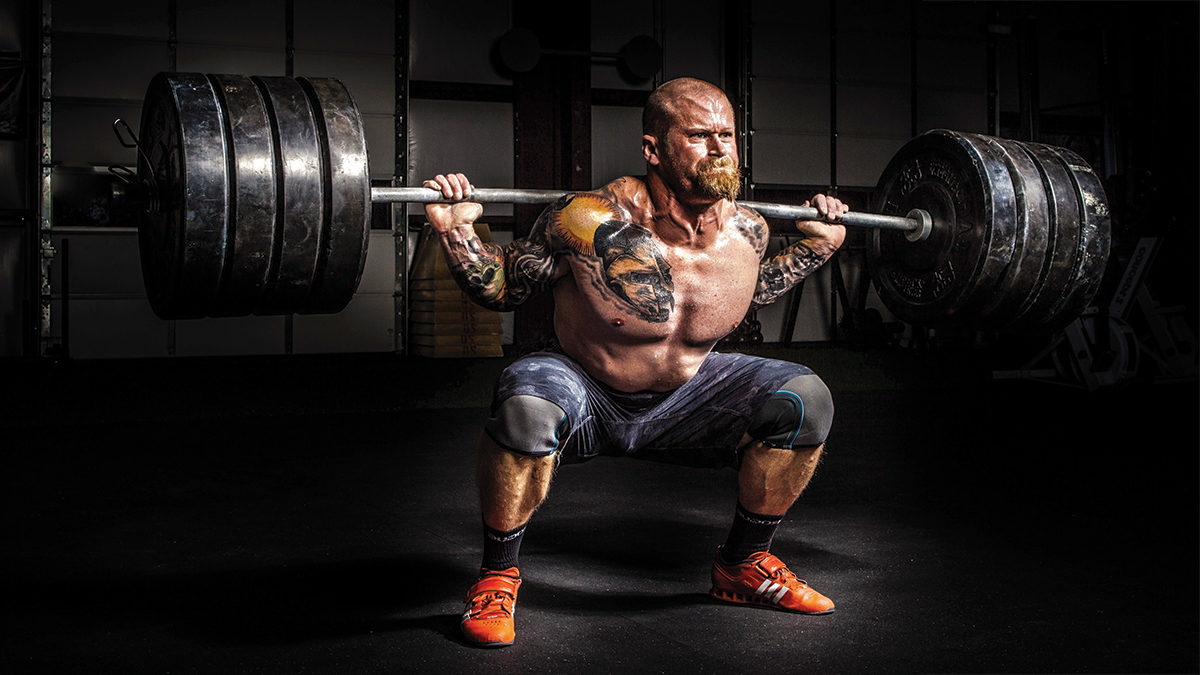A certain man decided to become a power lifter. He practised every day until at last he was able to lift 300 kilograms. Everyone was astounded at his ability. He was very careful to load his bar correctly—with even weights on each end of the bar: 150 kilograms on the right and 150 kilograms on the left. Then he would lock his back into position, brace his abs, place his hands in just the right position on the bar, fill his lungs with air and the lift was successful.
One day the man was careless and decided he didn’t need to load the weights evenly. As long as the total weight was 300 kilograms, he determined that he could put any weight on each end. So he put 200 kilograms on the right and 100 kilograms on the left. The total was 300 kilograms but the bar was unevenly balanced. When he attempted the lift, the strain was too much and he suffered great injury.
These are the key elements of this parable:
- The man = each one of us.
- The bar = faith.
- The weights = on one side, the will of God; on the other side, our will.
- The lift = the exercise of faith.
When we exercise faith there are two weights in play on the ends of our bar of faith. On the right is the weight of our will; on the left is the weight of God’s will.
If there is a correct balance between the weight of our will and the weight of God’s will, then our bar will be correctly weighted; we will be able to safely and successfully lift the bar of faith. However, if there is an imbalance, then not only will our lift be unsuccessful but we also stand the chance of being critically or mortally injured.
It doesn’t need much, and it doesn’t take much, to unbalance the weights on our bar of faith:
- That favourite little sin or innocent indulgence.
- That unconquered passion, unguarded moment or secret flaw.
- Selfishness, pride or worldly ambition.
- Self sufficiency, stubbornness.
- Self-glorification, greed or addiction.
- An incorrect perception of God or expectation of His promises.
The devil doesn’t care by how much the weights are out of balance, as long as they are! If we load even one gram extra onto the weight of our will, then that imbalance weakens our ability to successfully lift the bar of faith. And weakened faith causes us discouragement and doubt so that we might give up and lose our reward.
There was a Man who went about doing good. He treated everyone with kindness and respect. He allowed the despised of this world to draw near Him and did not treat them harshly. He healed the most dreadful of diseases, the most hopeless of cases. He raised dead people to life. He wept with those who wept, and rejoiced with those who rejoiced.
Then one night, alone in a garden, breaking under the unseen weight of the sins of the world, He cried out to His Father: “Not my will, but Your will be done.” In His humanity, He didn’t allow His will to override God’s will but He submitted His will to be in harmony with God’s will. His will and God’s will were in perfect balance. And because of that, He lifted the bar of faith higher than it had ever been lifted before, endured the shame and pain of the cross, and separation from His beloved Father. Even in His agonised question: “My God, my God, why have You forsaken me?”, His will was not out of balance with the will of God, for His final utterance was “It is finished!”
How was Christ’s will in balance with the Father’s will? RELATIONSHIP. Faith and will are centred in relationship with God.
Christ had a strong, living, active relationship with His Father; He knew His Father and He trusted Him. “… I seek not my own will, but the will of the Father which hath sent me” (John 5:30),” he said. And in John 4:34 He declared, “My food . . . is to do the will of him who sent me and to finish his work.” [pullquote]
Under inspiration, the writer of Hebrews, speaking of Christ, quoted from Psalm 40:8: “I desire to do your will, O my God.”
The more we know the Father, the more we are living in His love, the more we will put our will in line with His will, and then we will be able to successfully lift the bar of faith higher than we have ever lifted it before. Because the weight of our will is in perfect balance with the weight of the Father’s will.
Just how high did Christ lift the bar of faith? In the amazing chapter entitled “Calvary” in the book Desire of Ages, and picking up the dying moments of His struggle on the cross, we read:
“Amid the awful darkness, apparently forsaken of God, Christ had drained the last dregs in the cup of human woe. In those dreadful hours He had relied upon the evidence of His Father’s acceptance [previously] given Him. He was acquainted with the character of His Father; He understood His justice, His mercy and His great love. By faith He rested in Him whom it had ever been His joy to obey. And as in submission He committed Himself to God, the sense of the loss of His Father’s favour was withdrawn. By faith, Christ WAS victor” (p 756).
Great faith isn’t defined by our natural abilities or efforts but by two weights in perfect balance: our will and God’s will. “I tell you the truth, if you have faith as small as a mustard seed, you can say to this mountain, ‘Move from here to there’ and it will move. Nothing will be impossible for you’” (Matthew 17:20).
Diana Tanner attends North Perth Church, Western Australia.






